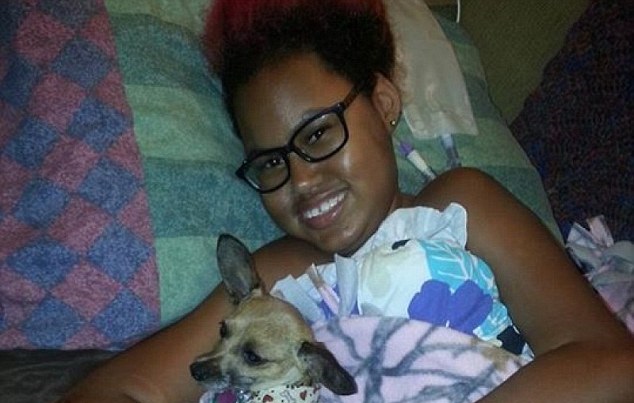After 38 surgeries and a life of intense physical pain, 14-year-old Jerika Bolen made the troubling decision that it is time for her to die.
Bolen’s heartbreaking story caught the attention of the Washington Post this week. The young teen from Appleton, Wisconsin has type 2 spinal muscular atrophy, a disease for which there currently is no cure. Those who have it often die in their teen years.
By all accounts, the young teen has tried her best to live a full, happy life with her family. Her local newspaper, the Post-Crescent, described Jerika this way, “But for her power wheelchair, Jerika Bolen is every bit an active 14-year-old girl – a hopeless romantic with shiny purple hair, a love of alternative music and an addiction to Facebook.”
But a few months ago, Jerika decided that she is ready for her life to end. Here’s more from the local news report:
Jerika and her mother, Jen Bolen, made arrangements for hospice care in early June, and Jerika will go without the ventilator that now assists her breathing for 12 hours each day. Jerika wanted a full summer, so the ventilator won’t be pulled until the end of August.
Once the ventilator is shut down, there’s no knowing how soon the end will come. Jen knows Jerika has a certain stubbornness built into her psyche – and though it’s long been to her benefit, she hopes her daughter’s fighting spirit will relent when it’s time.
“I hope it’s not more than a few days,” Jen said.
According to the Washington Post, Jerika’s condition and her pain are getting worse. She eventually could lose complete control of her hands and face, and her pain could get worse. The 14-year-old currently is receiving hospice care, according to the report.
Click here to sign up for pro-life news alerts from LifeNews.com
When Jen Bolen listened to her daughter’s plan to switch off her ventilator and die, the mother suggested that Jerika try more pain medicine instead.
“No, Mom. I’m serious,” Jerika told her mother. “I’m actually done.”
Jen said she has felt numb, angry and deeply sad since her daughter announced the decision. While she has suggested alternatives to her young daughter, the mother said the decision is ultimately her daughter’s.
“I know she’s only 14, but she’s old enough to decide,” Jen said. “It’s her body and it’s her pain.”
Jerika said she also felt sad about dying at first, but now she is dreaming of “going to be with God. I’m going to be free. I have been realizing I’m going to get to walk and not have this pain anymore and not have to, like, live this really crappy life.”
Jerika said she had her last surgery to appease her family, but she said her constant medical care is “tearing them apart” and it’s “making them really sad that I’m going on hospice.” She said she does not have a good “quality of life.”
“It’s going to hurt my family, but they eventually will be OK,” Jerika said of her death. “… my memory will carry on, I hope.”
Refusing medical treatment and allowing the human body to take its natural course is different from actively causing a death by assisted suicide or euthanasia. Pro-lifers do not believe it is wrong to refuse excessive medical treatment like surgeries and experimental treatment, but there is some debate about whether it is right to remove basic, life-sustaining care, such as what Jerika is receiving, in most circumstances.
There are a number of troubling factors in the teen’s story.
One concern is that Jerika is only 14 years old. According to the report, Jerika has a counselor who discussed the decision with her as well as her mom. Still, it is questionable whether the young teen is mature enough to fully understand the irreversible decision that she is making.
Another concern is that Jerika’s comments seem to indicate that her decision could have been influenced by fears of being a burden to her family.
“I sat myself down and I thought, ‘Jerika, am I here for me or am I here for my family? I can’t even do anything besides lie in bed because I’m so sore,’” she said during one interview.
Fear of being a burden is common among people who are sick, elderly, depressed or disabled; and these fears can lead vulnerable people to consider ending their lives prematurely. According to Dr. Peter Saunders: “In Washington in 2013, 61% of people opting for assisted suicide give the fear of being a burden to family, relatives and caregivers as a key reason. 13% cited ‘financial implications of treatment’. In the same year in Oregon the equivalent figures were 49% and 6%.”
People who are suffering physically, emotionally or psychologically should be relieved from their pain and suffering to the best of society’s abilities. And one of the ways society can do that is to reassure them that their lives still matter and are still worth protecting, no matter how short their life is or how much of a burden their care may be.








